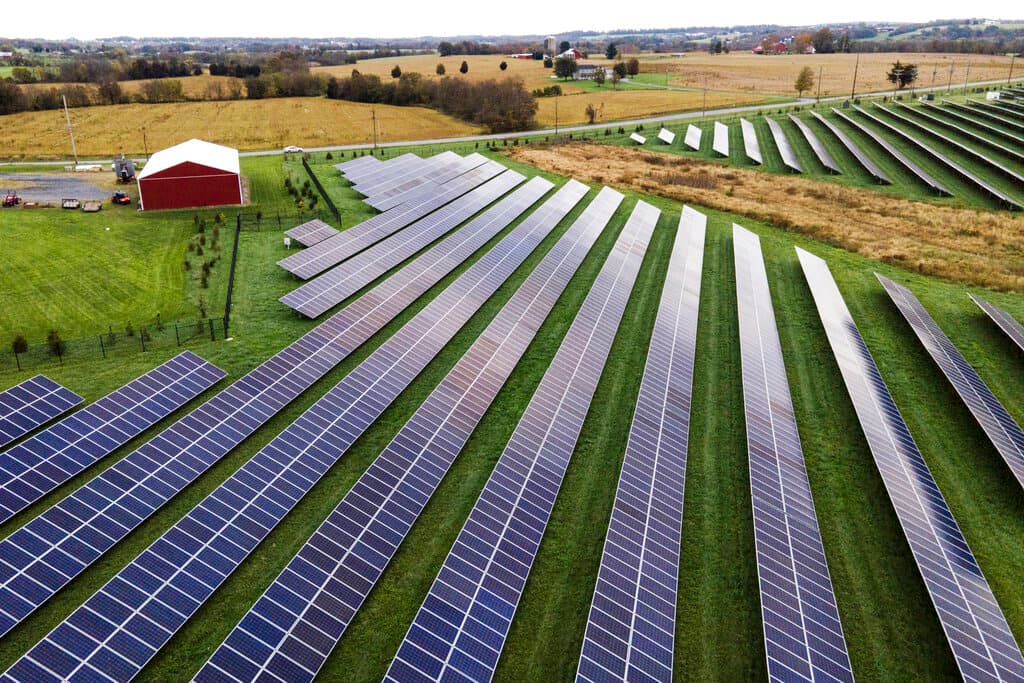Democrats’ ‘Clean Energy Transition’ Bill Would Pay Environmentalists To Hold Up Energy Projects
Critics say the legislation will turn America into San Francisco — a bureaucratic morass that allows for no real development and too many stakeholders at the table.

A permitting reform bill put up by the Democrats, which is aimed at rapidly scaling up the green energy sector, is already facing pushback from critics who say the legislation will make the transition more difficult — not easier or faster.
The Clean Electricity and Transmission Acceleration Act was introduced by Congressman Mike Levin and Congressman Sean Casten in the House in mid-December. The two men serve as co-chairmen of the House’s Sustainable Energy and Environment Coalition.
The legislation is supported by a wide array of members in the House Democratic caucus. Mr. Casten says his goals were “to address the primary issues holding back our clean energy transition” and “to craft a bill that may serve as the consensus transmission and permitting reform bill of the House Democratic Caucus.”
The bill is supported by people on both the left and right of the caucus, from the Progressive Caucus to the New Democrat Coalition.
Progressives in the House love the bill. Congresswoman Pramila Jayapal, who leads that caucus, says the bill is exactly what is needed at this moment. “Reducing our dependence on planet-warming fossil fuels, bringing down energy costs for our communities, and increasing power resilience and reliability during extreme weather — it’s a win for families, for our economy, and our planet,” she said in a statement.
The New Democrats — a more centrist group of House members — agree. “This comprehensive transmission reform package will tackle the climate crisis by removing barriers to clean energy deployment and reducing energy costs for Americans.
Critics have their sharp disagreements with how Messrs. Levin and Casten have gone about this, however. A law professor at University of California Davis, Christopher Elmendorf, says the legislation will turn America into San Francisco — a bureaucratic morass that allows for no real development and too many stakeholders at the table.
In a piece for the Atlantic titled, “Don’t San Francisco–ize Clean Energy,” Mr. Elmendorf says the permitting process as prescribed in this bill will slow the development process, not hasten it.
“Their bill … includes many good ideas, such as clarifying the federal government’s authority to approve interstate transmission lines, requiring public utilities to account for the ‘social cost of carbon’ in setting rates, and addressing a shortage of electrical transformers,” he says.
Mr. Elmendorf warns, however, that the bill hands out far too many veto pens. “This will allow NIMBY neighbors, fossil-fuel front groups, and other opponents of vital infrastructure to drag out the permitting process for years by concocting one procedural objection after another,” he writes.
The bill also creates a kind of slush fund that would pay environmental groups to fight back against development and the permitting process. The legislation states that the administrator of the Environmental Protection Agency “shall make grants” to states, Native American tribes, and nonprofits so that they can increase their “capacity” to be involved in permitting and environmental studies.
The fund, which would cost $3 billion, would be directed at groups that collect data and participate in environmental reviews. “Enhancing community engagement” is the purpose, the bill states, but that would essentially give groups a powerful veto over proposed developments. Mr. Elmendorf, who is no conservative, also warns that it deepens a system of corrupt, big-city politics.
“Rather than giving sweetheart deals to favored firms … city councils withhold development approvals from project sponsors unless the sponsor funnels money or in-kind benefits to the right nonprofits and hires workers from politically connected unions,” he says. “Meanwhile, the city bolsters the very same groups by awarding them contracts for affordable housing and other projects. Groups angling to stall projects or extract benefits for themselves also gain leverage through legal threats.”
The co-founder of the Institute for Progress, Alec Stapp, says those provisions are “the worst permitting reform” proposals he has ever seen.

